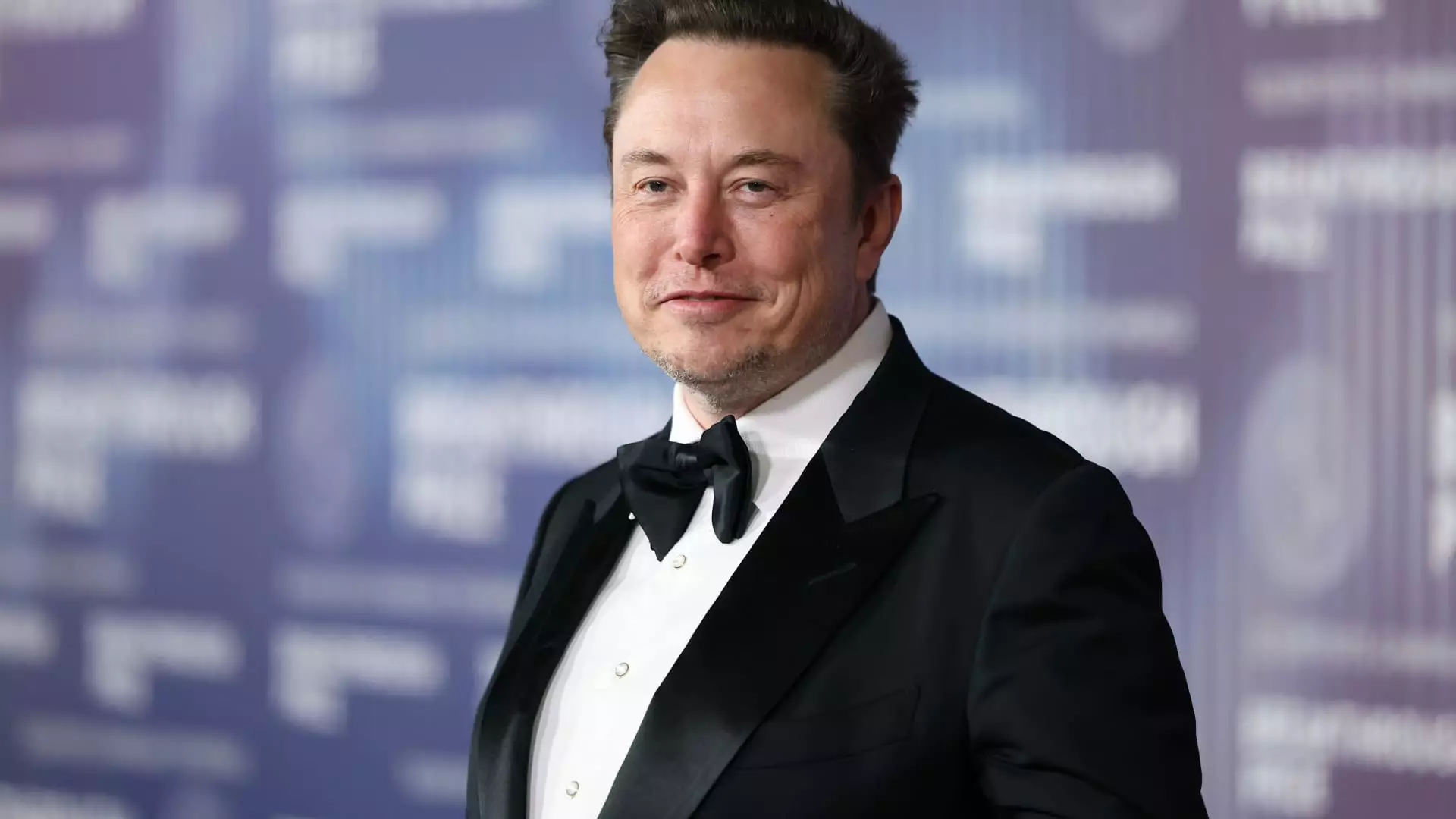In recent political developments, Elon Musk has entered the conversation regarding key appointments in President-elect Donald Trump’s administration. Sharing his preference on X, the platform formerly known as Twitter, Musk has endorsed Howard Lutnick as a potential Treasury Secretary. This endorsement holds weight not only because of Musk’s influence as the CEO of Tesla and SpaceX, but also due to the substantial financial implications the Treasury Department can have on economic policies.
Musk’s choice of Lutnick, who serves as CEO and chairman of Cantor Fitzgerald as well as BGC Group and Newmark Group, signals Musk’s desire for a more dynamic approach to the nation’s fiscal management. According to Musk, Lutnick is capable of “actually enacting change,” suggesting that he sees an urgent need for innovative strategies to tackle the ongoing financial challenges in the country. This perspective is crucial, especially amidst a climate where many believe that standard practices in economic governance are insufficient for addressing contemporary issues.
Amid Musk’s endorsement, he also critiqued Scott Bessent, the founder and CEO of Key Square Group. In his original remarks, Musk characterized Bessent as a “business-as-usual choice,” suggesting that conventional approaches may perpetuate the status quo rather than facilitate necessary reforms. This statement raises important questions about the qualifications and perspectives leaders bring to powerful positions, especially in an environment where America’s economic stability seems increasingly precarious.
The dichotomy between Lutnick and Bessent’s candidacy for Treasury Secretary emphasizes a broader debate about the need for transformative leadership versus reliance on conventional wisdom. As Musk pointed out, maintaining a “business-as-usual” mindset could contribute to further financial strain on America. Thus, the selection of leadership becomes not just a matter of qualifications, but also a reflection of the strategic vision we choose to adopt in confronting our economic realities.
Importantly, both Lutnick and Bessent have established connections to Trump, bolstering their credentials but also sparking concerns about the influence of personal relationships in high-stakes political appointments. Lutnick and Trump have fostered ties for years, and their partnership includes fundraising efforts aimed at strengthening Trump’s campaign. Such affiliations demonstrate how integral personal relationships can be in a political context, and whether they are beneficial or detrimental to the governance process remains a topic for scrutiny.
On the other hand, Bessent’s previous role as an economic advisor during Trump’s 2024 campaign, coupled with endorsements from influential figures like Republican Senator Lindsey Graham, highlights his political viability. Nonetheless, the emphasis on political ties raises questions about the extent to which such connections should weigh in the selection of candidates for critical economic roles.
Musk’s call for broader discussion and public feedback regarding the Treasury Secretary position reflects an emerging trend of fostering civic engagement in political matters. In an era where social media has become a catalyst for dialogue, the ability for ordinary citizens to weigh in on potential leaders can reshape accountability norms within governmental systems. As President-elect Trump makes his final decisions, the implications of these endorsements—coupled with public sentiment—will play a significant role in shaping the economic future of the country.
Musk’s endorsements serve not only as personal opinions but also as a reflection of the larger narrative about leadership, reform, and the intricate dance of politics and economics.

